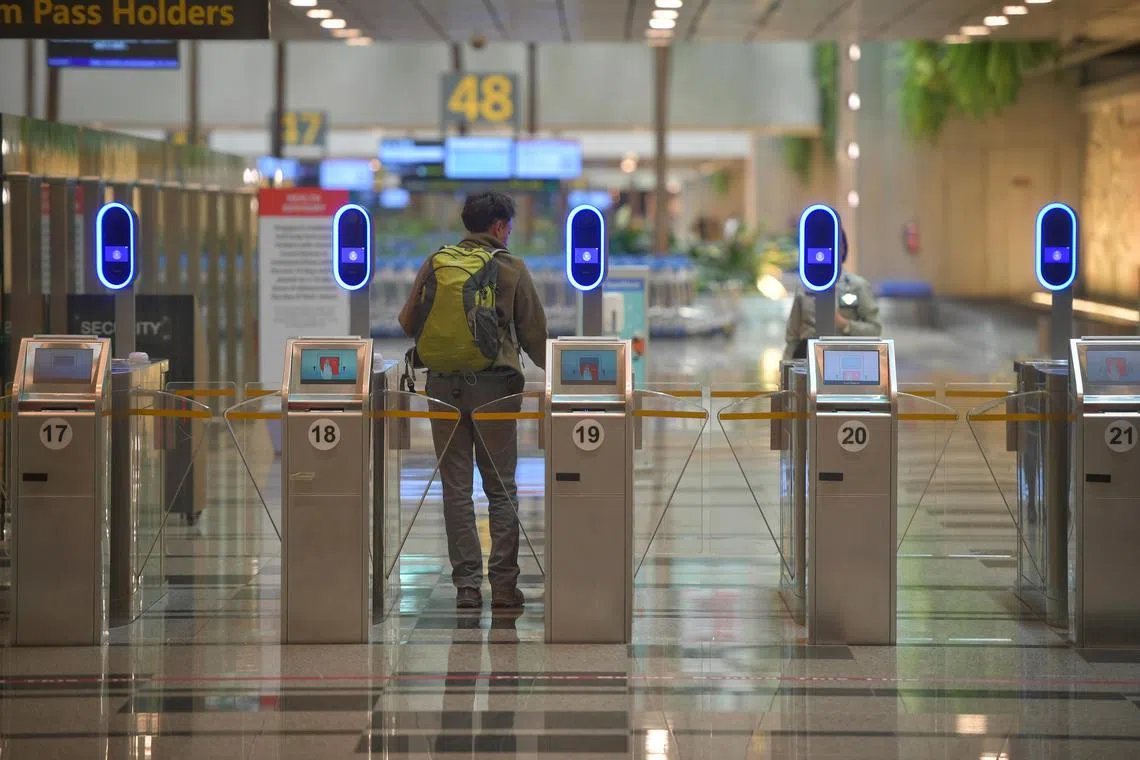Fewer than 2% of PRs lose permanent residency by being overseas without valid re-entry permit: MHA
Sign up now: Get ST's newsletters delivered to your inbox

Currently, all PRs here who go overseas need to have a valid re-entry permit, which allows them to re-enter Singapore.
ST PHOTO: ARIFFIN JAMAR
SINGAPORE - On average, fewer than 2 per cent of permanent residents (PRs) lose their PR status annually by leaving Singapore or remaining overseas without a valid re-entry permit (REP).
The Ministry of Home Affairs (MHA), which on Thursday revealed the figures in response to queries by The Straits Times, said the percentage was a very small minority of the total PR population here. According to Department of Statistics data, as at June 2022, Singapore’s PR population was around 520,000.
Currently, all PRs here who go overseas need to have a valid REP, which allows them to re-enter Singapore.
Under existing laws, a PR who is overseas with an expired REP would automatically lose his PR status, and has only a one-month grace period to apply for reinstatement.
Now, proposed changes to the law could mean PRs will have six months to apply for a re-entry permit. During this time, PRs would still retain their permanent residency status. These changes are part of the Immigration (Amendment) Bill, which was introduced for first reading in Parliament by Second Minister for Home Affairs Josephine Teo on Wednesday.
The Bill also proposes to remove the right to make statutory appeals – an appeal specifically prescribed by law – to the Minister for Home Affairs for PR-related decisions.
This means if a person’s PR status is revoked or cancelled, he would not be able to lodge an appeal with the minister.
On Thursday, MHA told ST that the minister receives about 10 statutory appeals a year. It added that MHA and the Immigration and Checkpoints Authority (ICA) also receive appeals through other channels, including from MPs.
Even without the statutory appeal, PR applicants and PRs may continue to seek ICA’s consideration of its decisions, particularly if there are new facts not previously submitted to ICA.
Separately, one of the other proposed changes to the Immigration Act is the plan to require bus operators to submit passenger information in advance to ICA.
On Thursday, MHA told ST that the proposed Bill will exempt public bus operators like SBS Transit, which operates cross-border bus services 170 and 160, and Causeway Link, as there are no practical means for them to provide advance passenger information.
MHA had said on Wednesday that the plan to collect advance bus passenger information is to weed out undesirable travellers, like those who pose a safety or security threat to the Republic, before they reach the Woodlands and Tuas checkpoints.
ICA currently collects advance passenger information from airlines and ship operators, and also has the power to do so with train operators.



